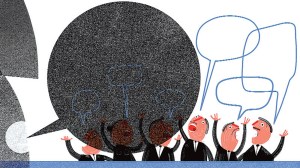Aussie youths suffer from ‘obsessive body image’
Young Aussies are seven times more likely to suffer from obsessive body image problems than their counterparts in Asian countries.

Believe it or not, young Australians are seven times more likely to suffer from extreme and obsessive body image problems than their counterparts in Asian countries, a new research has revealed.
What’s surprising is that gym junkies are the worst affected, a team at Melbourne University has found in their study of 1,000 students.
“Our obsession with looking right is far more dominant than the value that we place on intellect and that is severely affecting the way many of us feel about ourselves, as we have shown,” the news.com.au quoted team leader Prof David Castle as saying.
For their study, the team carried out two surveys. In the first one, they questioned first-year university students in Victoria and in China for rates of Body Dysmorphic Disorder — a severe psychiatric condition in which one obsesses over an often unnoticeable body defect, sometimes for hours a day.
The results showed 3.5 per cent of the 435 Australian students surveyed met the criteria for clinical diagnosis as compared to less than half a per cent of 488 Chinese students.
Chinese-born Australians were found to have the same high rate as Caucasians.
According to Prof Castle, cultural values can explain the stark difference.
“In China, as in many other Asian cultures, it seems less value is put on physical attributes like sporting prowess and more on other attributes like intellectual ability and the person as a whole.
“They also revere their older people, whereas our culture is youth-focused and very tied up with judging by appearance first and foremost. I think that’s where we are going wrong,” he said.
The second survey of 93 male gym users found rates of BDD were as high as 5.4 per cent, with half having a type of the condition called muscle dysmorphia.
“This is a kind of reverse anorexia where people see themselves as slight and puny when they’re actually quite muscular. As a result they obsess by spending hours at the gym and drink endless protein drinks to try to fix it,” said Prof Castle.



- 01
- 02
- 03
- 04
- 05




























